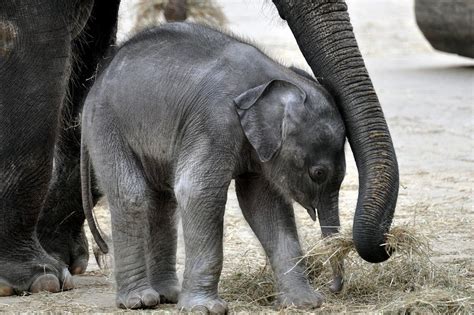In the vast tapestry of life on Earth, countless creatures exhibit remarkable social behaviors, forging intricate bonds and engaging in cooperative endeavors. Among these social animals, a particularly heartwarming and fascinating aspect is the care they provide for their young. From grand whales to tiny insects, a diverse array of species across the animal kingdom demonstrate extraordinary levels of parental investment, nurturing and protecting their offspring until they reach independence.

The Importance of Parental Care
Parental care plays a crucial role in the survival and well-being of young animals. By providing food, shelter, protection, and education, parents increase their offspring’s chances of reaching adulthood and successfully reproducing, thereby perpetuating the species. In many cases, the level of parental care has a direct impact on the reproductive success of the animals.
Cooperative Breeding in Social Species
Cooperative breeding is a complex social strategy employed by many animal species, where multiple individuals participate in the care and rearing of the young. Cooperative breeding systems offer several advantages, including increased survival rates for offspring, enhanced protection against predators and environmental disturbances, and more efficient foraging.
One of the most well-known examples of cooperative breeding is found in the African elephant herds. Female elephants form strong and long-lasting bonds, working together to raise their young. The herd provides a safe and supportive environment, with multiple females nursing and protecting the calves. Cooperative breeding in elephants has been shown to increase the survival rates of young elephants, particularly during periods of drought or food scarcity.
Comparative Analysis of Parental Care Strategies
Across the animal kingdom, there is a remarkable diversity of parental care strategies. Some species exhibit extreme parental investment, providing extensive care for their young over extended periods. Other species adopt a more hands-off approach, leaving their offspring to fend for themselves at a young age.
The following table provides a comparative analysis of parental care strategies in three different social animal species:
| Species | Parental Care | Duration | Offspring Dependency |
|---|---|---|---|
| Emperor Penguin | Extreme | 14 months | Highly dependent |
| Naked Mole Rat | Cooperative | Lifetime | Communal rearing |
| Green Sea Turtle | N/A | 0 days | Independent at birth |
Common Mistakes to Avoid in Parental Care
Although parental care is an instinctive behavior in many species, there are some common mistakes that can negatively impact the well-being of young animals.
- Abandoning the Young: The abandonment of young is a serious problem that occurs for various reasons, such as stress, lack of resources, or illness. Abandoned animals often face significant challenges in finding food and shelter, and may be more vulnerable to predators and disease.
- Overprotectiveness: While protecting offspring is essential, excessive protectiveness can hinder their development and socialization. Overprotected young may become fearful and anxious, and less able to cope with the challenges of adulthood.
- Neglect: Neglect occurs when parents fail to provide adequate food, shelter, or protection for their young. This can be caused by a variety of factors, including illness, lack of experience, or social disruption. Neglect can lead to malnutrition, disease, and even death.
Conclusion
The care and rearing of young is a fundamental aspect of social behavior in animals. Across the animal kingdom, there is a remarkable diversity of parental care strategies, ranging from extreme investment to minimal involvement. Cooperative breeding and communal rearing are common in social species, offering significant benefits in terms of survival, protection, and education. Understanding the intricacies of parental care helps us appreciate the resilience and adaptability of life on Earth, and fosters a deeper connection to the natural world.
